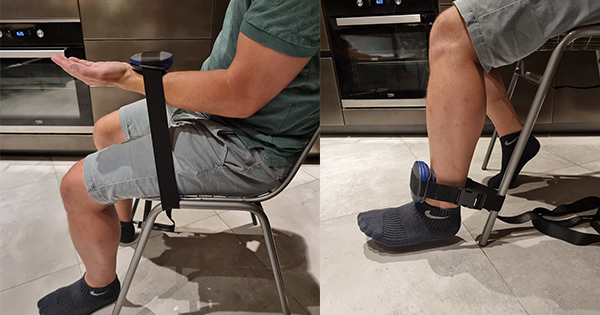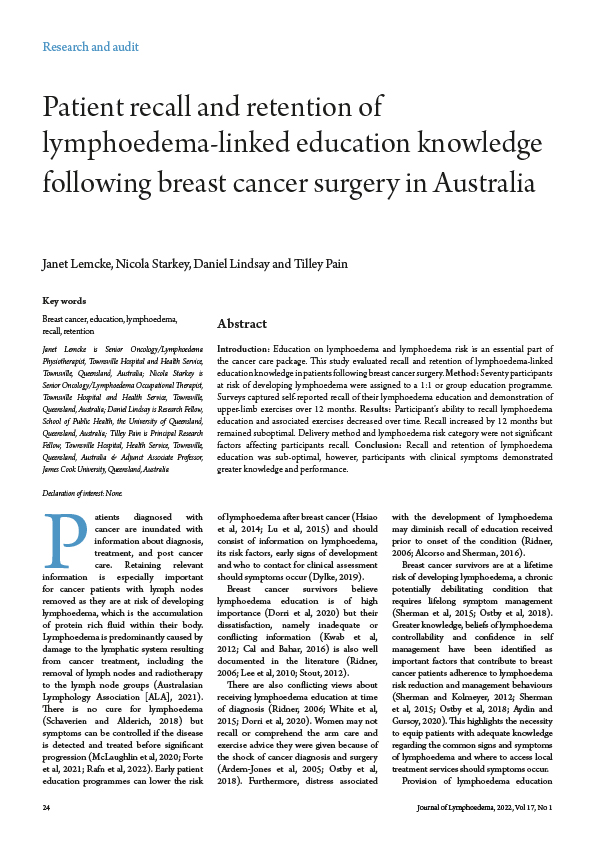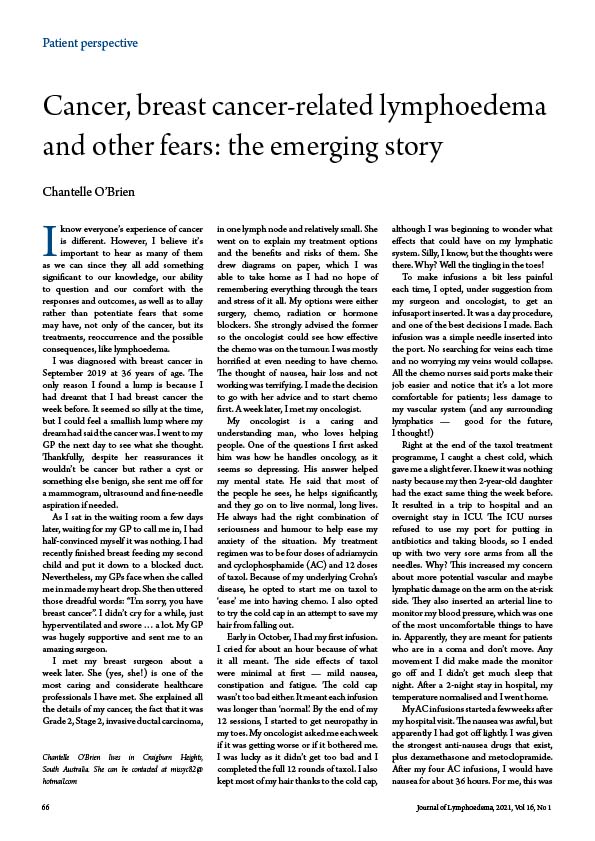<p>Background: A screening tool was developed to identify morbidity emerging in the years after breast cancer treatment.</p>n<p>Aims: This project aimed to investigate patient responses to a newly developed screening tool for lymphoedema, reduced arm function, fatigue and pain.</p>n<p>Methods: Interviews were conducted following completion of the screening tool by 40 women attending review appointments post-treatment for breast cancer (86% response rate). Questions addressed ease of completion and administration.</p>n<p>Results: On average, participants were 5.8 years post-treatment (1–28) and 64 years of age (38–79). It took eight to 20 minutes to complete the screening tool, with five participants needing assistance. Ninety-eight per cent of participants generally understood the instructions and 76% were able to answer all questions. There was some confusion about unfamiliar terminology (i.e. ‘the axilla’) and a question was raised relating to experiences of pain (people had difficulty differentiating pain relating to breast cancer and other conditions). Twenty per cent of respondents would prefer to receive the questionnaire by post, with 41% preferring paper to electronic completion.</p>n<p>Conclusions: With minor modifications and further pilot testing of validity and reliability, this screening tool has the potential to enable rapid identification of morbidity, enabling appropriate action to be taken as well as facilitating service planning.</p>n<p>Declaration of interest: None.</p>






